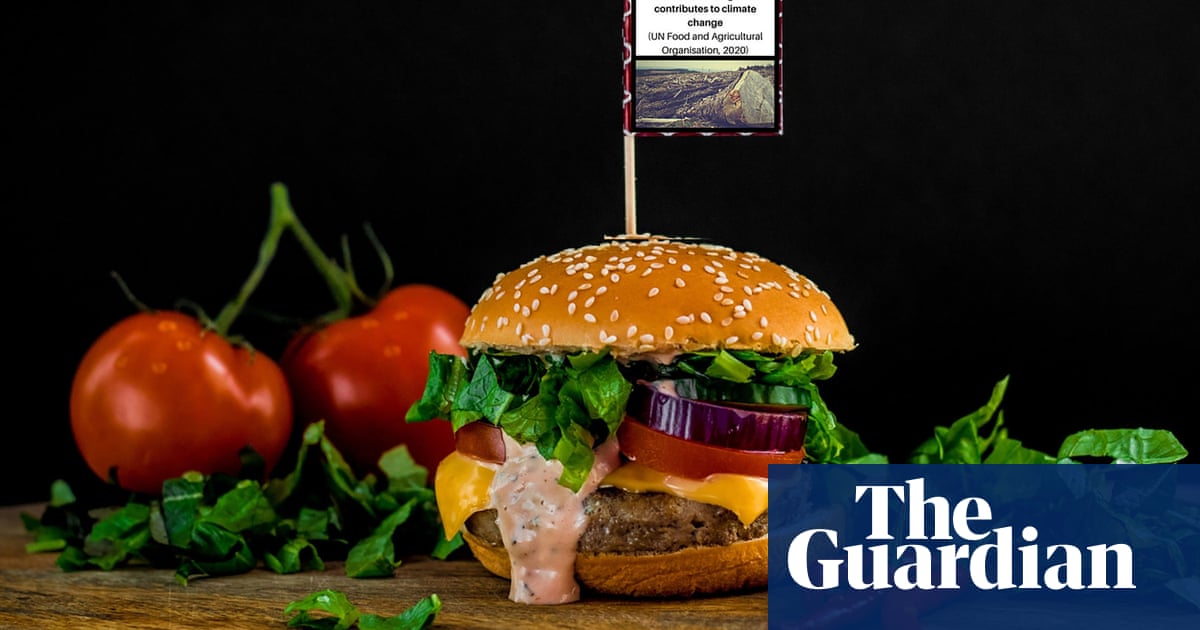People are used to seeing stark warnings on tobacco products alerting them about the potentially deadly risks to health. Now a study suggests similar labelling on food could help them make wiser choices about not just their health, but the health of the planet.
The research, by academics at Durham University, found that warning labels including a graphic image – similar to those warning of impotence, heart disease or lung cancer on cigarette packets – could reduce selections of meals containing meat by 7-10%.
It is a change that could have a material impact on the future of the planet. According to a recent YouGov poll, 72% of the UK population classify themselves as meat-eaters. But the Climate Change Committee (CCC), which advises the government on its net zero goals, has said the UK needs to slash its meat consumption by 20% by 2030, and 50% by 2050, in order to meet them.



Meat is cheap because of govt subsidies. And lab grown meat will soon be able to undercut slaughtered meat in price without those subsidies, so the whole “let poor people eat what they can afford” argument will switch sides in the coming years without new protectionist governmental policies.
How soon? Last I heard, they had insurmountable scaling issues.
Problems are always insurmountable until they aren’t. Scaling is one of the last challenges businesses face when bringing new products to market. I don’t have any inside information, but investment is still trending up and companies aren’t throwing in the towel, so they still think they will be able to solve it. Once they do, the industry will change incredibly fast, especially with a market estimated at close to $100b per year.
I’m watching with great interest.
When. Fullofshit.
Meat is not “cheap” it’s god dam expensive.
No one said meat is “cheap.” The word was used as a relative comparison, meaning slaughtered meat is cheaper than lab-grown alternatives.
Keep telling yourself that.
Wow you are dense
deleted by creator
Building a premise out of a lie just makes you a liar.